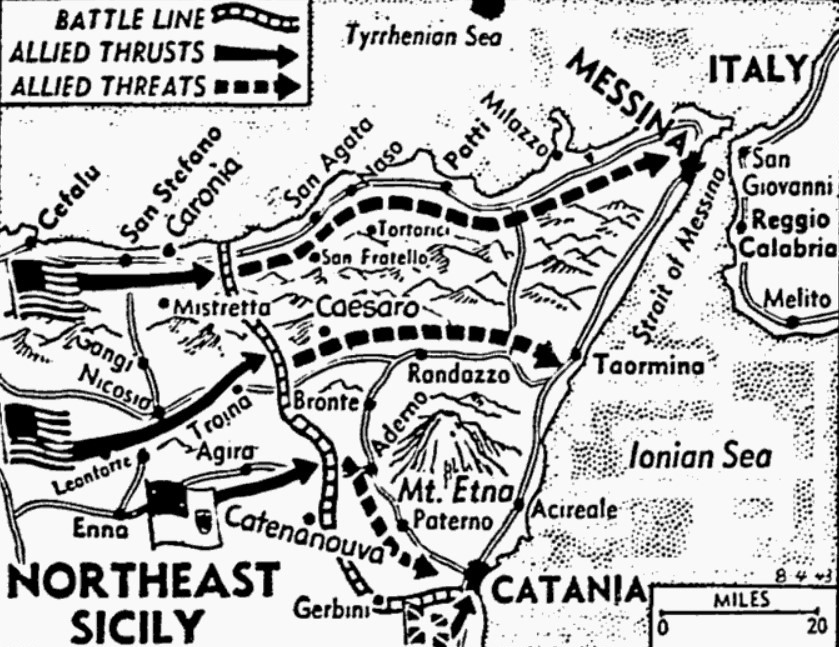U.S. State Department (August 3, 1943)
740.00119 European War 1939/1560a: Telegram
The Secretary of State to the Ambassador in the Soviet Union
Washington, August 3, 1943 — 2 p.m.
637.
Your 977, July 30, 4 p.m.
Please call upon Molotov as soon as you are able to obtain an appointment and hand him an aide-mémoire reading substantially as follows:
Begin aide-mémoire. The Government of the United States is of the opinion that following the disappearance of Mussolini Italian resistance is rapidly crumbling and that within a relatively short period full capitulation is to be expected. The Allied Commander-in-Chief of the area is being authorized to accept unconditional surrender from anyone who in his judgment is in a position to offer it. He is also being authorized to take such military measures as may seem to him to be appropriate in order to preserve order, guarantee the security of the Allied forces in Italy, and to prepare for his next immediate future military operations. We understand that the British Government has informed the Soviet Government of our joint ideas on the terms of surrender to be exacted from Italy.
The Government of the United States continues to share the view that it is essential that the United States, British, and Soviet Governments keep each other fully informed regarding military developments in the various areas in which their respective armed forces are operating and also that they maintain constant touch with each other regarding such developments of a political nature as may arise from the immediate military developments.
Any suggestions with regard to the situation in Italy which the Soviet Government may at this or at any future time care to offer would, therefore, be welcomed by the United States Government. Furthermore, the United States Government would be glad to reply to any specific inquiries which the Soviet Government might care to make with regard to the Italian situation. End aide-mémoire.
For your confidential information the British Government has been informed of and has agreed to the contents of this aide-mémoire. The British Government’s aide-mémoire in reply handed to Winant by Eden on August 2 with annexes reads as follows:
Aide-mémoire. A day or two ago the Soviet Chargé d’Affaires was given a summary of the draft instrument of Surrender, which is still before the United States Government (annex 1). It was made clear that this instrument was purely provisional, pending agreement with the U.S. Government, and that its terms might have to be modified. A note has now been received from Monsieur Sobolev saying that the Soviet Government consider the provisions contained in this summary to correspond fully to the existing conditions, and have no objection to them.
Since communicating the above to the Soviet Government, the President has suggested a shorter formula for a purely military arrangement to be used by General Eisenhower in case of necessity. The Prime Minister has indicated to the President that in case of emergency General Eisenhower may be authorized to present this document. But he has asked the President to consider further the draft instrument already communicated to Washington, so that, if agreement can be reached on it before the emergency arises, General Eisenhower may be authorized to present this fuller document in reply to any Italian request.
The Soviet Government are now being given a summary of the shorter document (annex 2) with an explanation of the circumstances in which it was drafted, and in which it may be used. End aide-mémoire.
We are advised that the first information given to the Russians by the British was given on July 30. You will note that the British have limited their messages simply to informing the Russians whereas our aide-mémoire specifically asks them for suggestions and agrees to reply to specific inquiries they may choose to make.
HULL
